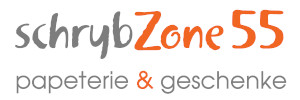Intelligent Perceptual Systems
New Directions in Computational Perception, Lecture Notes in Computer Science 74
Roberto, Vito /
Erschienen am
01.10.2007, Auflage: 1. Auflage
Beschreibung
Perceptual processes in humans and machines, investigated and simulated by means of the computational approach, are the subject matter of this volume. Researchers in artificial intelligence, pattern recognition, and psychology discuss aspects of vision, speech understanding, sensory-motor coordination, and their interplay with cognitive and behavioral functionalities. The papers adopt the computational approach as the basic research paradigm. Connectionist models, numerical and statistical techniques, symbolic (logic-based) formalisms, and hybrid representations provide the formal background to the research. Some of the papers were prepared for a workshop held in Trieste, Italy, in October 1992.
Autorenportrait
InhaltsangabeGestalt problems in cognitive psychology: Field theory, invariance and auto-organisation.- Neural network learning in an ecological and evolutionary context.- Trends in pattern recognition.- Computer vision systems: Functionality and structure integration.- On the use of auditory models in speech technology.- Automatic speech recognition with neural networks: Beyond nonparametric models.- New shape from Shading methods.- Orientation-dependent effects in neural networks.- Identification of pattern dimensionality by self-organization.- A Markovian model for perceptual grouping of different shape primitives.- Segmented image reduction.- Design and acquisition of a task-oriented spontaneous-speech database.- Language and ambiguity.- Spatial Logic for image representation and retrieval-by-contents.- Communication among perceiving agents.- Perception of mental states from communication.- Perceptual grouping for scene interpretation in an active vision system.- Using viewer-centered representations in machine vision.- A non-linear integration process for the selection of visual information.- Distributed perceptive paradigms: Preliminary statements.- Anticipatory tracking of a moving object.- A time-to-crash detector based on area expansions: Example of an opto-motor reflex.- "Intelligent" telepresence: Introducing virtual reality in advanced robots.














